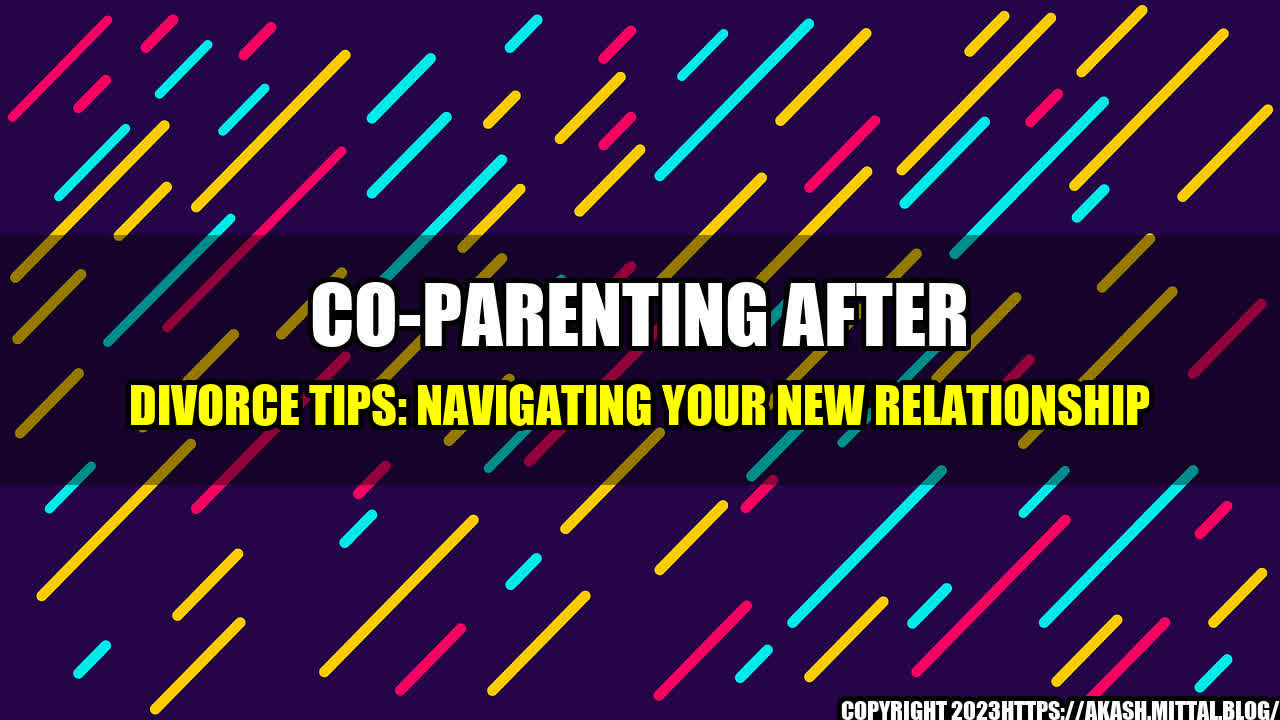It's been a year since Mia and her ex-husband got a divorce. It was a messy and emotionally draining process, but somehow they managed to work out a co-parenting agreement that worked for them and their two children. However, things got complicated when Mia started dating again. Her ex-husband, Tom, was bitter and jealous, and refused to be civil to her new partner. It was a difficult situation that left Mia feeling torn between her new relationship and her co-parenting duties.
The Challenges of Co-Parenting After Divorce
Mia's situation is not unique. Many divorced parents struggle with balancing their co-parenting responsibilities with their new relationships. It can be challenging to navigate a new relationship with an ex-spouse, especially if there are lingering feelings of resentment, hurt, or anger.
The following co-parenting after divorce tips can help you navigate this delicate situation:
1. Keep the Communication Open
Communication is key in co-parenting after divorce. As much as possible, try to keep the lines of communication open with your ex-spouse. This is especially important if you have children together. Make sure to communicate about any changes to the parenting schedule, school events, medical issues, and other important matters.
It's also important to be respectful and civil in your communication. Don't let your emotions get the best of you, and avoid using inflammatory language or derogatory remarks.
Avoid discussing your new relationship with your ex-spouse, as this can create tension and jealousy. If you need to discuss something related to your new partner (such as introducing them to your children), do so calmly and rationally. Don't let your ex-spouse's negative reactions affect your own behavior.
2. Prioritize Your Co-Parenting Duties
Your co-parenting duties should always come first, even before your new relationship. This means making sure you stick to your parenting schedule, attending important events, and taking care of your children's needs.
If your new relationship is interfering with your co-parenting duties, it may be a sign that you need to reassess your priorities. Talk to your new partner about the importance of your co-parenting relationship and set boundaries around how much time you can spend together.
It's also important to be flexible and accommodating when your ex-spouse needs to make changes to the parenting schedule. This can help build trust and goodwill, which can make your co-parenting arrangement smoother and more successful.
3. Respect Boundaries
Finally, it's important to respect boundaries in your co-parenting relationship. This means not overstepping your role as a co-parent, and not trying to interfere with your ex-spouse's life or new relationship.
Similarly, your ex-spouse should respect your boundaries and not try to interfere with your new relationship. If you feel that your ex-spouse is crossing a line or being disrespectful, calmly and assertively address the issue and set clear boundaries.
Remember that your children are the priority in your co-parenting relationship. Always keep their best interests in mind, and do your best to create a stable and supportive environment for them.
Conclusion
Co-parenting after divorce can be challenging, especially when you're trying to navigate a new relationship with your ex-spouse. However, with open communication, prioritization of your co-parenting duties, and respect for boundaries, you can create a successful and positive co-parenting relationship.

Curated by Team Akash.Mittal.Blog
Share on Twitter Share on LinkedIn